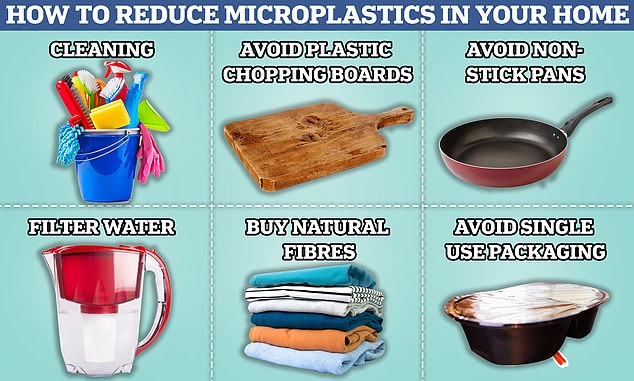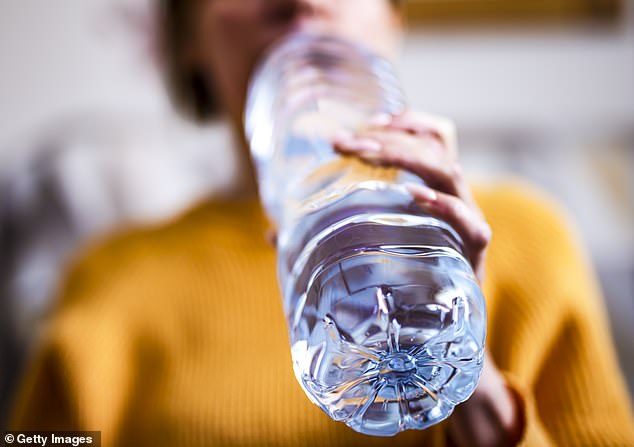Microplastics have been found in the brain for the first time, leading scientists to conclude that people are inhaling these harmful particles.
Plastic fibres and particles have been found in the brains of several deceased people, thought to have come from clothing, bottles and food packaging.
Experts warned that plastics are infiltrating and potentially modifying cells, adding that there can be “no more doubt” about the dangers they pose to human health.
The scientists conducted the study on brain samples taken from 15 people in Sao Paulo, Brazil, finding traces of polypropylene in eight of them.
The microplastics were identified in the part of the brain known as the olfactory bulb, which sits above the nasal cavities that process information about smells and transmit it to other parts of the brain.
Researchers discovered traces of plastic fibers and particles in the brains of people who died
They were also present in the nose, reinforcing the idea that this is an important entry point to the brain.
Researchers fear that levels of smaller nanoplastics, which pass into the human body more easily, may be even higher.
Professor Thais Mauad, lead researcher at the University of São Paulo, said: ‘This study finds that the olfactory pathway is a potential important entry route for plastic into the brain, meaning that breathing indoors could be an important source of plastic pollution in the brain.
‘Since much smaller nanoplastics enter the body more easily, the total level of plastic particles may be much higher.
“What is worrying is the ability of these particles to be internalized by cells and alter the functioning of our bodies.”
The world produces 500 million tonnes of plastic every year and scientists have highlighted the risks created when it breaks down.

Experts say you can reduce your exposure to microplastics by replacing plastics in your home with natural materials, metal and glass.
This substance, which was only invented in the 20th century, is increasingly present in our bodies, including in babies in the womb and in breast milk.
Scientists have compiled a list of more than 16,000 chemicals found in plastic products, of which more than 4,000 are considered hazardous to human health and the environment.
Researchers are increasingly concerned about the ability of these particles to internalize within cells, causing alterations in cellular function, particularly when they interact with organs in children and cause permanent alterations in adult life.
There is growing evidence that plastics may play a key role in the early onset of cancer, when healthy cells become cancerous.

You could be ingesting a large amount of microplastics simply by cutting your food on a plastic cutting board.
Earlier this year, a study found that cancer cells in the gut spread at an accelerated rate after contact with microplastics.
Maria Westerbos, co-founder of the Plastic Health Council, said: “Time and again scientists are exposing the dangerous effects of plastics on human health. There can be no more doubt.”
‘The international community is just months away from final negotiations on the Global Plastics Treaty, and yet policymakers are caving to petrochemical giants.
“The international community cannot afford to waste any more time; it must listen to science, once and for all.”

